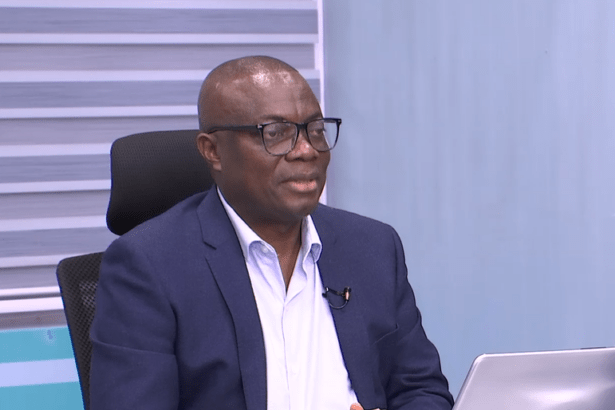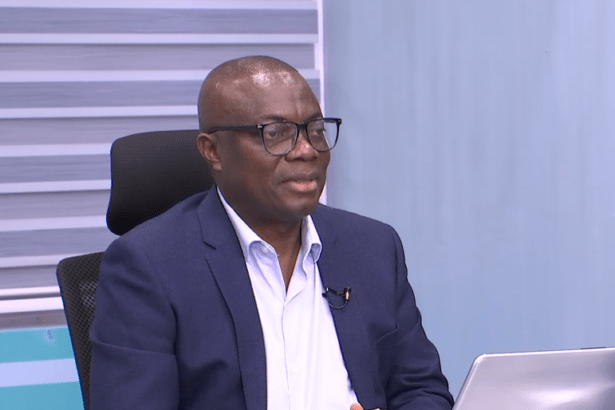
Mussa Dankwa, Executive Director of Global InfoAnalytics, has rejected calls to halt polling on potential National Democratic Congress (NDC) presidential candidates, arguing that suspending surveys would compromise his organization’s independence and objectivity.
The pollster’s defiance comes after Ben Dotse Malor, Chief Editor for UN News and former presidential spokesperson, urged him via social media to pause polling on presidential aspirants, claiming “it’s not helping our nation now.”
In a pointed response posted on social media, Dankwa suggested the pressure stems from government discomfort with public opinion data rather than legitimate methodological concerns. “They don’t want the voices of the people to be heard,” he wrote, referring to critics within government circles.
Dankwa emphasized that Global InfoAnalytics operates under company policy requiring voter sentiment surveys every three months, and that such polling represents standard practice for opinion research organizations. “Mussa Dankwah does not own the polls, Global InfoAnalytics does,” he clarified, noting the institutional nature of the surveys.
The controversy follows recent Global InfoAnalytics polling on potential NDC presidential candidates ahead of the party’s 2028 primaries. While specific results from the latest survey haven’t been widely published, the mere act of gauging internal party sentiment has apparently triggered concerns among some party figures and government officials.
Malor’s appeal to Dankwa was direct: “Dear Bro Mussa Dankwah: we accept you’re brilliant, BUT pls pause your polling on presidential aspirants. It’s not helping our nation now. PLEASE. TNX.”
But Dankwa rejected that logic, questioning why early polling on presidential candidates—who won’t be elected by general voters—should worry anyone. “Voters don’t elect presidential candidates, so why are they worried?” he asked, highlighting that party delegates, not the general public, choose flagbearers.
Drawing a comparison to the previous administration, Dankwa noted that the New Patriotic Party (NPP) government, despite being unhappy with his organization’s work, never directly called for polling to stop. “As a company, we will continue,” he declared. “No one instructs a polling organization on what not to poll because it is too early.”
The pollster warned that complying with such requests would fundamentally undermine Global InfoAnalytics’ credibility. “Imagine we heed the call, can you imagine its implications on our independence and objectivity?” he wrote, suggesting that bending to political pressure would destroy the trust essential for research organizations.
Dankwa also defended the value of early polling in political contests, arguing that surveys “will bring sanity into your race unless you don’t understand how.” His comment suggests he views polling data as beneficial for candidates and parties by providing reality checks on public sentiment.
This isn’t the first time Dankwa’s work has sparked controversy. His organization faced scrutiny in January 2025 when Ghana Revenue Authority (GRA) officials invited him for questioning, a move some observers interpreted as pressure related to his polling activities. Critics of such engagements have characterized them as attempts to intimidate independent researchers whose findings may displease those in power.
Global InfoAnalytics has also faced methodological criticism. In July 2025, analysts questioned the firm’s sampling design, noting that its respondent pool skewed heavily male (58%) and young (68% under 44 years old, just 1% over 65), potentially failing to accurately represent Ghana’s adult population.
Dankwa has consistently defended his methodologies while acknowledging that polling involves uncertainty and margin of error. His organization has published surveys on various political contests, including the NPP’s 2023 flagbearer race, though some predictions proved controversial when actual results differed from poll projections.
The current dispute reveals tensions between independent polling organizations and political actors uncomfortable with public opinion data. For ruling parties, early polling on potential successors or primary candidates can create awkward dynamics, potentially elevating certain figures while diminishing others before formal contests begin.
Malor’s position as a former Mahama administration spokesperson adds layers to the controversy. He served as Communications Advisor to President Mahama during the first term before leaving to return to the United Nations, where he currently works as Chief Editor for UN News. His intervention suggests concerns about polling’s impact extend beyond anonymous government officials to include prominent NDC figures.
However, Malor’s current UN position technically places him outside active Ghanaian politics, raising questions about whether his appeal represents personal opinion or reflects broader sentiment within NDC circles. His phrasing—”it’s not helping our nation now”—frames opposition to the polling in national rather than partisan terms, though critics might argue this obscures partisan motivations.
For independent polling organizations in Ghana, the controversy highlights ongoing challenges in maintaining research autonomy amid political pressure. While Ghana’s democratic culture generally tolerates opinion polling, the space for independent research can narrow when findings create discomfort for those in power.
Dankwa’s firm stance suggests he recognizes that credibility depends on resisting such pressure regardless of its source. Once a polling organization suspends surveys because political actors request it, the organization’s independence becomes questionable for all future work.
The NDC faces genuine questions about succession planning as President Mahama serves what the constitution limits to his final term. Polling on potential 2028 candidates provides data about which party figures enjoy stronger or weaker public recognition and favorability—information that could prove valuable for strategic planning.
Whether such polling “helps the nation” depends on perspective. Those who value transparent democratic processes and informed public discourse might argue early polling enhances political accountability. Those worried about premature contest dynamics or concerned about specific poll results might reasonably question timing.
For now, Dankwa has made clear Global InfoAnalytics won’t halt its quarterly polling cycle based on political requests. Whether pressure intensifies or subsides may depend partly on what future surveys reveal about presidential ambitions within the ruling party.
